M.I.A. | Subject Section | Vietnam
Vietnam Revolution Subject Section
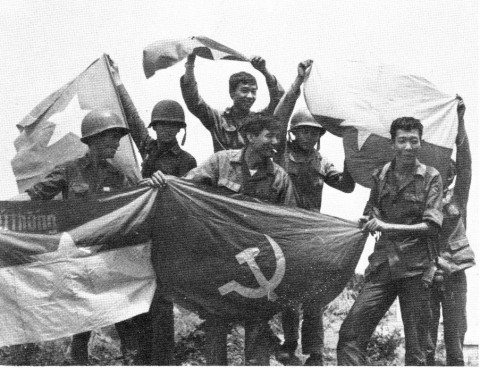
Vietnamese Writers and Political Leaders
(Linked names take you to that person’s archive in MIA)

Hồ Chí Minh (1890-1969)
Ho Chi Minh, real name Nguyễn Tất Thành, a.k.a. Nguyễn Ái Quốc, Vietnamese Communist leader and the principal force behind the Vietnamese struggle against French colonial rule and Japanese occupation during World War II. Ho Chi Minh helped found the Communist-dominated independence movement, popularly known as the Vietminh, that fought the Japanese. After Japan’s surrender in 1945, the Vietminh proclaimed the Democratic Republic of Vietnam (DRV) in Hanoi, with Ho Chi Minh as elected President. Ho continued to lead the independence movement until the decisive battle of Dien Bien Phu in 1954 overthrew French colonial rule. Subsequent negotiations at Geneva divided the country, with only the North assigned to the Vietminh. The DRV, with Ho still president, now devoted its efforts to constructing socialism in North Vietnam. When Communist-led guerrillas mounted an insurgency against the U.S.-supported regime in Saigon in the South, “Uncle Ho” and others in the North continued to fight for reunification of the country. On September 3, 1969, he died in Hanoi of heart failure before he could see the eventual defeat of U.S. occupation and the entire country reunited. After reunification, Saigon was renamed Ho Chi Minh City in his honor. In many ways, Ho Chi Minh embodied the spirit of Vietnam’s revolutionary struggle for independence.
* * * * * * * * * *
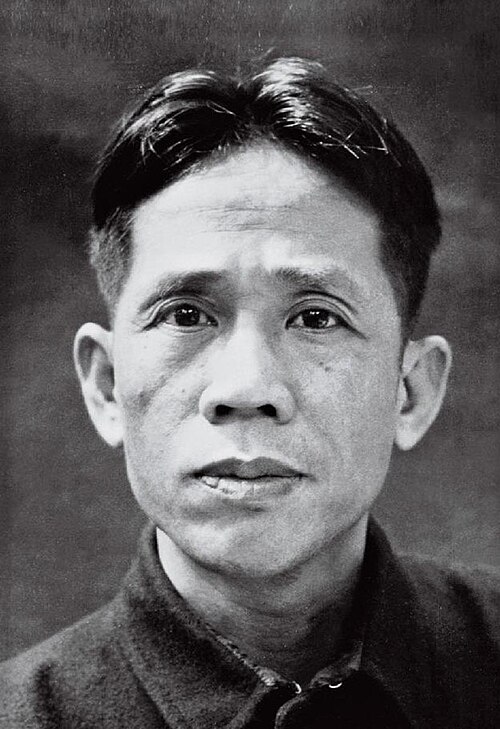
Lê Duẩn (1907-1986)
Lê Duẩn, born Lê Văn Nhuận, was a leading Communist politician, theorist, and policy-maker with a career spanning over 5 decades. Duẩn joined the Vietnamese Revolutionary Youth League in 1928 and helped found the Indochinese Communist Party (ICP) in 1930. After release from prison in the late 1930s, Duẩn moved up in the ICP and was elected to its Central Committee. After the division of the country in 1954, Duẩn remained in the South of Vietnam and became one of the most influential strategists and leaders in South Vietnam’s struggle to oust the United States as part of the larger goal of reunification. After reunification, Duẩn remained one of Vietnam’s most influential politicians, shaping both domestic and foreign policy, until his death in 1986.
* * * * * * * * * *
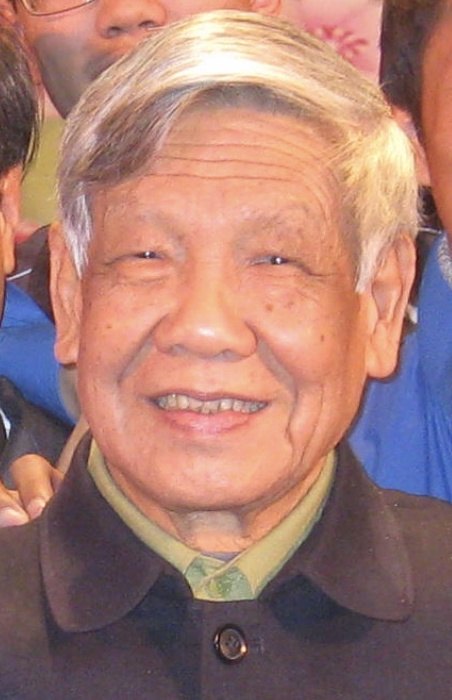
Lê Khả Phiêu (1932-2020)
Lê Khả Phiêu joined the Viet Minh in 1945 and later became a soldier in the Vietnamese People’s Army, advancing through officer positions to include the Head of the General Political Department of the VPA. In 1997, Lê Khả Phiêu was elected to the post of General Secretary of the Communist Party of Vietnam, which he retained until 2001.
* * * * * * * * * *
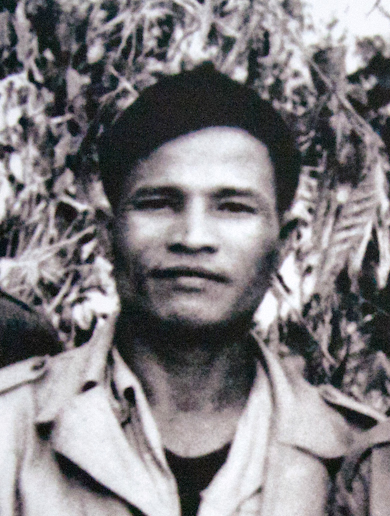
Nguyễn Chí Thanh (1914-1967)
Nguyễn Chí Thanh was a General in the North Vietnamese Vietnam People’s Army and former North Vietnamese politician. He joined the Indochinese Communist Party in the mid-1930s and apparently spent most of the Second World War in a French prison. He worked for the Party in Central Vietnam until his rise to the Politburo in 1951. During the First Indochina War Thanh was made a general of the People’s Army of Vietnam. From 1965 until his death, he served as the leading strategist and military commander of COSVN, the southern headquarters of communist military and political operations within the Republic of Vietnam. In 1967, he presented plans for what was to become the Tet Offensive to the Politburo, but died shortly after receiving permission to implement his plan. [Biographical sketch excerpted from Wikipedia]
* * * * * * * * * *
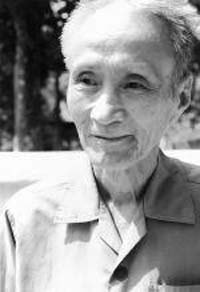
Nguyễn Khắc Viện (1913-1997)
Nguyễn Khắc Viện was a Vietnamese historian, literary critic, sometime dissident, and advocate of a Vietnamese health exercise dưỡng sinh similar to Yoga. Khắc Viện first came to Paris, France, in 1937, a time where the capital was a hotbed for anti-imperialist political exiles. He would stay in the country for twenty years, wherein he pursued an advanced degree in medicine, became a doctor and a writer. He became a member of the French Communist Party in 1947, two years after Ho Chi Minh’s declaration of Vietnamese independence. and worked on propaganda, campaigns, and discussions for Vietnamese national liberation with both French intellectuals and Vietnamese soldiers in the French army. Khắc Viện was a prominent voice for Vietnamese national liberation since 1953 until his expulsion to Vietnam in 1963. He became the editor of the French journals Études Vietnamiennes (Vietnamese Studies) and the Courrier du Vietnam (Vietnamese Courier). Under the pseudonym Nguyen Nghe, he wrote a prominent critique of the book Wretched of the Earth by fellow anti-colonialist Franz Fanon, in the essay “Frantz Fanon and the Problems of Independence.” Viện was a [Communist Party of Vietnam] member formerly in charge of external propaganda and statements to foreign press. However his circulating of criticism of the government in the 1980s led to a ban on his writings till the early 1990s. [Biographical sketch excerpted from Wikipedia]
* * * * * * * * * *

Nguyễn Phú Trọng (1944-2024)
Nguyễn Phú Trọng held a multi-decade career in Vietnamese politics as a theoretician and political leader. Trong held several top leadership positions in the Communist Party of Vietnam (CPV) as well as the Vietnamese government, sometimes simultaneously. During his years in leadership, Trong initiated anti-corruption campaigns within the CPV and government, and strengthened international political ties. He is the third person to simultaneously head the party and state after Hồ Chí Minh and Trường Chinh. In 2021, Trọng became the first Vietnam leader since Lê Duẩn to be elected as General Secretary for more than two terms.
* * * * * * * * * *
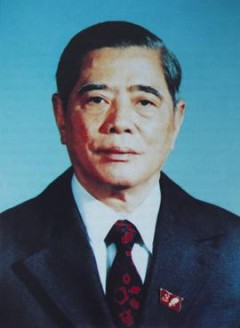
Nguyễn Văn Linh (1915-1998)
Nguyễn Văn Linh (born Nguyễn Văn Cúc) became involved with the revolutionary liberation movement in Vietnam at an early age, joining the Ho Chi Minh Communist Youth Movement at the age of 14. He spent much of the fight against French colonial rule and later U.S. occupation in the South of the country. During the Vietnam War, Nguyễn Văn Linh was the party secretary for the Viet Cong in South Vietnam. He also specialised in propaganda, studying and attempting to influence American politics in favour of North Vietnam. He trained special undercover Vietcong spies who infiltrated government organisations in Saigon. In 1968, Linh directed the Tet Offensive against South Vietnam. After reunification in the 1970s, Linh clashed with others in the Communist Party of Vietnam leadership as to economic and political strategies for the country. In the late 1980s, as CPV General Secretary, Linh presided over the introduction of market-based reforms to the Vietnamese economy, known as Đổi Mới. Years later, Linh would also go on to criticise some of the long-term effects of these same market-based reforms. Linh is also remembered for contributing to the rebuilding of strained political ties with countries such as China, Cambodia, and the United States. [Biographical sketch excerpted from Wikipedia]
- Vietnam: Urgent Problems (1988)
* * * * * * * * * *
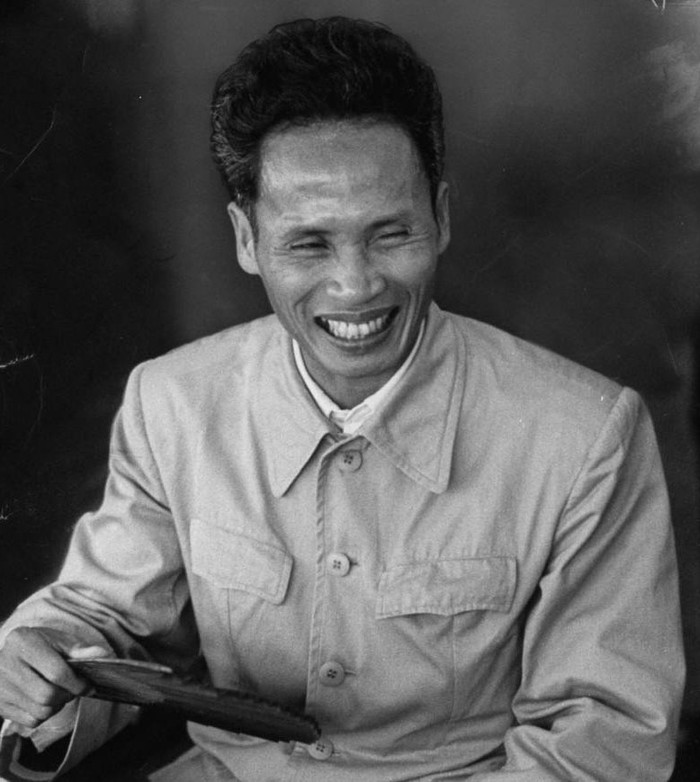
Phạm Văn Đồng (1906-2000)
Phạm Văn Đồng was the longest serving Vietnamese Prime Minister, serving as the Prime Minister of North Vietnam (1955-1976) and subsequently as the first Prime Minister of Vietnam (1976-1987). Over the course of his career, he also served in the roles as the Democratic Republic of Vietnam’s Minister of Finance, Minister of Foreign Affairs, Member of the Politburo, Deputy Prime Minister of North Vietnam, and (after retirement) Advisor to the Central Committee. He began his political career as a student organizer in the 1920s, training under Ho Chi Minh and joining the Vietnamese Revolutionary Youth League. He participated in many seminal events of the Vietnamese fights for liberation and reunification and directly participated in negotiations with French and U.S. representatives along the long path to independence.
* * * * * * * * * *
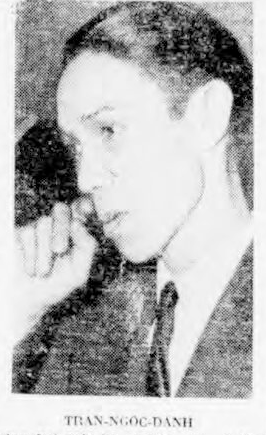
Trần Ngọc Danh (1908-1952)
Trần Ngọc Danh was an early political leader in the Communist-led struggle for Vietnamese independence. In the 1920s, prior to the August Revolution, he received some political and educational training in the Soviet Union and China. In the 1930s he was convicted by the French colonialists, but later released after the August Revolution. He was elected to the first National Assembly of the Provisional Government of the Democratic Republic of Vietnam. Trần Ngọc Danh participated in the official delegation of the Democratic Republic of Vietnam in France from 1946 to 1949. He later moved to Prague after being targeted by the French authorities in Paris. According to some biographical sources, this period coincided with Trần Ngọc Danh becoming critical of Ho Chi Minh and the direction of the Provisional Government. These disagreements were reportedly never resolved with some claims that he was expelled from the Party before his death in 1952. He was the brother of Trần Phú, the first General Secretary of the Indochinese Communist Party. [Biographical sketch excerpted from Wikipedia]
* * * * * * * * * *
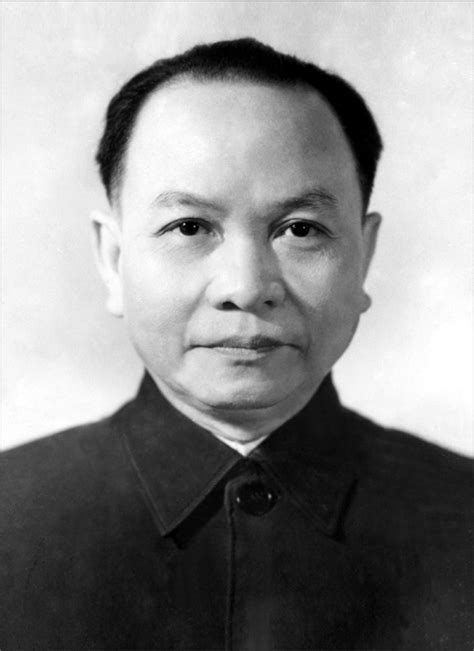
Trường Chinh (1907-1988)
Trường Chinh, born Đặng Xuân Khu, was a leading political figure in Vietnam beginning as a student in the 1920s and lasting into the 1980s. Chinh held important posts in the Indochinese Communist Party, Worker’s Party of Vietnam, Communist Party of Vietnam, National Assembly of Vietnam, and other revolutionary and/or Vietnamese organizations. Early in his political career, Chinh co-authored a foundational analysis of the peasant question in Vietnam. Later, both after the division of the country in 1954 and after reunification, Chinh contributed influential theoretical and strategic ideas for the transformation of the Vietnamese economy and national culture.
* * * * * * * * * *
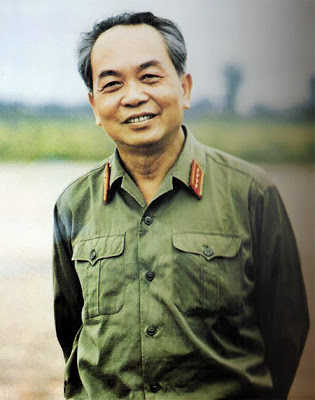
Võ Nguyên Giáp (1911-2013)
Võ Nguyên Giáp was a General in the Vietnam People’s Army and a politician. He served as the military leader of the Viet Minh resistance against the Japanese occupation of Vietnam during World War II, was a principal commander in the First Indochina War (1946–1954) and the Vietnam War (1960–1975), and participated in significant battles such as: Lạng Sơn (1950), Hòa Bình (1951–1952), Điện Biên Phủ (1954), the Tết Offensive (1968), the Easter Offensive (1972), and the final Hồ Chí Minh Campaign (1975). Giáp was also a journalist, an interior minister in President Hồ Chí Minh’s Việt Minh government, the military commander of the Việt Minh, the commander of the Vietnam People’s Army (PAVN), and defense minister. He was the most prominent military commander, beside Ho Chi Minh, during the Vietnam War, and was responsible for major operations and leadership until the war ended. He also served as a member of the Politburo of the Vietnam Workers’ Party, which in 1976 became the Communist Party of Vietnam.
Official documents from the Communist Party of Vietnam, Vietnam Workers’ Party, Indochina Communist League, South Vietnamese National Liberation Front, and related parties/organizations
- Declaration of the Foreign Office, Provisional Government of The Republic of Viet-Nam (1945)
- Viet-Nam’s Fight Against Fascism, 1940-1945 (1948)
- Causes of the Conflict Between France and Viet-Nam (1948)
- The Manifesto and Platform of the Viet-Nam Lao Dong Party (1951) [Unofficial translation from China]
- Peace or Violence (1963)
- American Crimes in Vietnam (1966)
- South Viet Nam National Front for Liberation: Documents (1968)
- An Outline History of the Vietnam Workers’ Party, 1930-1970 (1970)
- An Outline History of the Vietnam Workers’ Party, 1930-1975 (1976)
- Communist Party of Vietnam, 5th National Congress: Political Report (1982)
- History of the Communist Party of Vietnam (1986)
- Communist Party of Vietnam, 7th National Congress: Documents (1991)
- The Constitutions of Vietnam, 1946-1959-1980-1992 (1995)
Vietnamese periodicals
Nan Dhan
Vietnam Courier
Additional documents from Vietnam
- Documents (1945)
- Includes:
- Bao-Dai, “Happiness of the Vietnamese People, Independence of the Vietnamese nation”
- Bao-Dai, “The Emperor’s message to his royal clan on the occasion of his Abdication”
- Ho Chi Minh, “Declaration of Independence of the Republic of Viet-nam”
- Foreign Policy of the Provisional Government of the Republic of Vietnam (circa 1940s)
- Our Youth (1947)
- Women of Viet-Nam in the Struggle for the Safeguard of Independence (1948)
- The Vietnamese Working Class in the Long and Hard War of Resistance (1955)
- The Peace Movement in Vietnam (1958)
- The United Front in Communist Strategy: Tactics in South Vietnam (1962)
- South Vietnam (1963)
- Snapshots of an Aggression (1965)
- Solemn Pledge of the Thirty Million Vietnamese People (1965)
- Vietnamese Intellectuals Against U.S. Aggression (1966)
- Vietnam - Myth & Reality (1967)
- U.S. War Crimes in Vietnam (1968)
- The American Crime of Genocide in South Viet Nam (1968)
- The Ivory Comb, 2nd Ed. (1968)
Writings about Vietnam by other MIA authors
- Anna Louise Strong, Cash and Violence in Laos and Viet Nam (1962)
- Kim Il Sung, “Answers to Questions Raised by the Delegation of the Democratic Youth League of Finland” (1969) [p.120 of Works, Vol. 24]
- Writings about Trotskyism in Vietnam